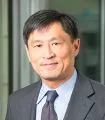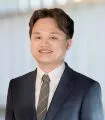- in European Union
- with readers working within the Aerospace & Defence industries
The U.S. Department of Commerce's Bureau of Industry and Security (BIS) published an interim final rule to implement new controls on certain additive manufacturing, advanced semiconductor, and quantum computing technologies, along with international partners. The rule introduces a new plurilateral control regime by creating new worldwide license requirements for national security (NS) and regional stability (RS) controls under the Export Administration Regulations (EAR). International partners with comparable implemented export controls (IEC) are eligible for a new License Exception IEC (discussed below). The rule went into effect on September 6, 2024, though the new controls on quantum items have a 60-day delayed effective date when destined to Wassenaar Arrangement member states except for Malta, Russia, and Ukraine.
Key Updates
Key changes implemented by the new rule include:
- New worldwide license requirements for certain quantum computing items, advanced semiconductor manufacturing equipment, Gate All-Around Field-Effect Transistor (GAAFET) technology, and additive manufacturing items
- New Export Control Classification Numbers (ECCNs) and revisions to existing ECCNs to control covered items
- New License Exception IEC for those countries implementing equivalent national controls and a new General License
New Worldwide License Requirements
BIS is creating a new framework in the EAR to identify items for which controls are harmonized with the IEC of international partners. The IEC items are controlled for newly established NS and RS controls that impose a worldwide license requirement. As a result, a license is required to export, reexport, or transfer (in-country) the IEC items to any jurisdiction outside of the United States, unless a license exception (such as the new License Exception IEC discussed below) or general license is available under the EAR.
New ECCNs and Revised ECCNs
New IEC items are mostly identified in the 900 series of the
Commerce Control List (CCL), though some IEC items are controlled
under existing ECCNs. IEC items include (1) quantum computing
items; (2) advanced semiconductor manufacturing equipment; (3)
GAAFET technology; and (4) additive manufacturing items.
The following provides a high-level summary of the items that are
subject to the new worldwide NS and RS controls:
- 2B910 / 2D910 / 2E910 - Additive manufacturing-related equipment, software, and technology
- 2E903 - "Technology," not specified elsewhere, for the "development" or "production" of 'coating systems'
- 3A901 / 3D901 / 3E901 - Complimentary metal-oxide semiconductor (CMOS) integrated circuits and parametric signal amplifiers that operate at very low temperatures, at specified frequencies, and a noise figure parameter and related software/technology
- 3A904 / 3E901 - Cryogenic cooling systems and specified components, and technology
- 3B001.c.1.a / 3D001 / 3D002 / 3E001 - Isotropic dry etching equipment and related software/technology
- 3B001.c.1.c / 3D001 / 3D002 / 3E001 - Anisotropic dry etching equipment and related software/technology
- 3B001.q / 3D001 / 3D002 / 3E001 - "EUV" masks and "EUV" reticles designed for integrated circuits, not specified by 3B001.g, and having a mask "substrate blank" specified by 3B001.j and related software/technology
- 3B903 / 3D901 / 3E901 - Scanning Electron Microscopes (SEM) designed for imaging of semiconductor devices or integrated circuits and related software/technology
- 3B904 / 3D901 / 3E901 - Specified cryogenic wafer probing equipment and related software/technology
- 3C907 / 3D907 / 3E901 - Epitaxial materials consisting of a "substrate" having at least one epitaxially grown layer and containing other specified materials and related software/technology
- 3C908 / 3E901 - Fluorides, hydrides, chlorides, of silicon or germanium, containing any of the following: silicon having an isotopic impurity less than 0.08% of silicon isotopes other than silicon-28 or silicon-30; or germanium having an isotopic impurity less than 0.08% of germanium isotopes other than germanium-70, germanium-72, germanium-74, or germanium-76, and related technology
- 3C909 / 3E901 - Silicon, silicon oxides, germanium, or germanium oxides containing any of the following: silicon having an isotopic impurity less than 0.08% of silicon isotopes other than silicon28 or silicon-30; or germanium having an isotopic impurity less than 0.08% of germanium isotopes other than germanium-70, germanium-72, germanium-74, or germanium-76, and related technology
- 3E905 - Technology for the "development" or "production" of integrated circuits or devices using GAAFET structures
- 4A906 / 4D906 / 4E906 - Quantum computers and related "electronic assemblies" and "components" and related software/technology
BIS removed ECCN 3A001.a.9 (neural network integrated circuits) "because of the addition of ECCN 3A090, which controls integrated circuits that may be used for machine learning of artificial intelligence systems."
Applicability to Deemed Export and Deemed Reexport
The new worldwide license requirement will have limited immediate impact on deemed exports and deemed reexports (i.e., release of source code or technology to a foreign national within a single jurisdiction), as the rule contains a grandfather provision and provides certain exclusions.
- Grandfather Provision for GAAFET Technology: Except for deemed exports and deemed reexports of certain GAAFET technology (ECCN 3E905) to foreign persons whose most recent country of citizenship or permanent residency is a country in Country Group D:1 or D:5, the new worldwide NS and RS controls do not apply to deemed exports and reexports of technology or software (including future advancements and versions of the same technology or software) to employees or contractors already employed as of September 6, 2024 and who are not prohibited persons.
- Limited Exclusion: Unless for foreign persons whose most recent citizenship or permanent residency is a Country Group D:1 or D:5 country, the new worldwide NS and RS controls do not apply to deemed exports and deemed reexports of the following: 2D910; 2E910; 3D001 ("software" for "EUV" masks and reticles in ECCN 3B001.q); 3D901 (for "software" for quantum items in ECCNs 3A901.b, 3B904 and SEMs in ECCN 3B903); 3D907 ("software" designed to extract "GDSII" or equivalent data); 3E001 ("technology" for "EUV" masks and reticles in ECCN 3B001.q); 3E901 (for "technology for quantum items in 3A901, 3A904, 3B904, 3C907, 3C908, and 3C909, and for SEMs in ECCN 3B903); 3E905 ("technology" according to the General Technology Note for the "development" or "production" of integrated circuits or devices, using GAAFET structures); and 4D906 ("software" for quantum items in 4A906) or 4E906 ("technology" for quantum items in 4A906).
- Full Exclusion: The new NS and RS controls do not apply to deemed exports and deemed reexports of technology and software controlled under ECCNs 3D001, 3D002, and 3E001 for anisotropic dry plasma etch equipment and isotropic dry etch equipment in 3B001.c.1.a and c.1.c.
In addition, a general license provided in the General Order No. 6 (described below) also authorizes the deemed exports and deemed reexports of newly controlled GAAFET technology and quantum computing technology and software, subject to certain conditions and requirements.
License Exceptions and General License
The IEC items have limited License Exception eligibility. Specifically, IEC items are only eligible for License Exceptions IEC, TMP, RPL, GOV, and TSU (and the new General License).
New License Exception IEC
The rule creates a new License Exception IEC, which allows for the export, reexport, or transfer of the relevant IEC items to or within international partners that implement similar export controls. The current scope of License Exception IEC eligibility is outlined here. BIS will continue to update the License Exception IEC eligibility as international partners implement similar controls.
New General License
BIS also added a new General Order No. 6 that authorizes certain exports, reexports, and transfer (in-country) of newly controlled GAAFET technology and quantum computing items. Specifically, General Order No. 6 allows the following:
- GAAFET Technology for Existing Project: Export, reexport, or transfer (in-country) of GAAFET technology specified in ECCN 3E905 for the development or production of integrated circuits to end users in Country Group A:5 or A:6 countries when that development or production began on or prior to September 6, 2024.
- Deemed Export/Reexport of GAAFET Technology to Existing Employees and Contractors: Deemed exports and deemed reexports of GAAFET technology specified in ECCN 3E905 (including future advancements or versions of the same technology) to foreign person employees or contractors already employed by entities as of September 6, 2024, whose most recent country of citizenship or permanent residency is a destination specified in Country Group D:1 or D:5 and who are not prohibited persons.
- Deemed Export/Reexport of Quantum Technology/Software: Deemed exports and deemed reexports of quantum technology and software specified in ECCNs 3D901 (for quantum items in ECCNs 3A901.b, 3B904), 3E901 (for quantum items in 3A901, 3A904, 3B904, 3C907, 3C908, 3C909), and "technology" for quantum items in ECCNs 4D906 or 4E906, to foreign persons whose most recent country of citizenship or permanent residency is a destination specified in Country Group D:1 or D:5 and who are not prohibited persons.
Exports, reexports, and transfers (in-country) under General Order No. 6 are subject to annual reporting requirements, end-use/user restrictions, and recordkeeping requirements. The first annual reports are due on November 5, 2024 and should cover the period from September 6, 2024 to October 28, 2024. Thereafter, annual reports covering the reporting period ending December 31 must be submitted no later than February 1.
Conclusion
Exporters should review their product portfolios against the
revised CCL to determine if any of their items are newly controlled
or if they are subject to expanded licensing requirements.
Companies employing foreign nationals will also need to determine
whether the foreign nationals may be involved with the IEC items,
and if so, assess the potential impact of the new rule, including
whether they may need to rely on General Order No. 6 and submit
related annual reports.
Interested parties may also consider submitting comments to the
interim final rule. BIS will accept comments until November 5,
2024.
The content of this article is intended to provide a general guide to the subject matter. Specialist advice should be sought about your specific circumstances.








